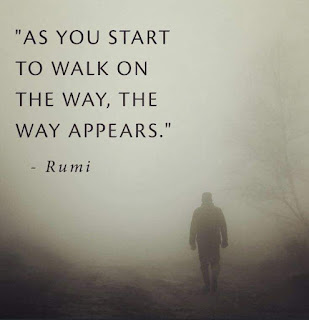Sunday, December 31, 2023
Friday, December 29, 2023
Wednesday, December 27, 2023
Monday, December 25, 2023
Casablanca
You must remember this
Saturday, December 23, 2023
Thursday, December 21, 2023
Tuesday, December 19, 2023
Sunday, December 17, 2023
Parizaad
When Parizaad ran on TV last year, I was not aware of it. I got a text from an old childhood friend from Scotland to watch it. I asked him: "Why?"
He replied: "Hum sab ki kahani parizaad jesi hai."
(Reminded a lot of episodes from my previous life in Pakistan)
ریشمی اندھیرے ہیں، سُرمئی اُجالے ہیں
ایک ناز آفریں دل پر قبضہ جمائی بیٹھی ہے
جس کی جھیل آنکھوں میں دو نیل بوں سے پیالے ہیں
یہ تن بدن تو چھلنی ہے اور روح پر بھی چھالے ہیں
کیسے جان پاؤ گے؟ عشق میں کیا گزری ہے؟
کتنے زخم کھائے ہیں؟ کتنے درد پالے ہیں؟
سائیاں وے
سائیاں وے
جسم تو گلابی ہیں اور دل سے کالے ہیں
میں دھوپ کا پجاری ہوں
میں لفظ کا بھکاری ہوں
لیکن جہاں میں بستا ہوں، وہاں مندروں پہ تالے ہیں
کیا حسن کو سراہیں گے؟
تاریک جن کے چہرے ہیں
مقدّروں پہ جالے ہیں
یہ سانپ آستینوں میں ہم نے خود ہی پالے ہیں
کیسے جان پاؤ گے؟ عشق میں کیا گزری ہے؟
Wednesday, December 13, 2023
Monday, December 11, 2023
Saturday, December 09, 2023
Einstein's view on life
I am not an Atheist. I do not know if I can define myself as a Pantheist. The problem involved is too vast for our limited minds. May I do not reply with a parable? The human mind, no matter how highly trained, cannot grasp the universe. We are in the position of a little child, entering a huge library whose walls are covered to the ceiling with books in many different tongues. The child knows that someone must have written those books. It does not know who or how. It does not understand the languages in which they are written.
Thursday, December 07, 2023
Tuesday, December 05, 2023
The Zeigarnik Effect
You pull out the key to open your house. You unlock the door and get inside. Then several hours later you're looking for the key and wondering where it is. And you discover that you have left it behind on the door. Has this happened to you?
Sunday, December 03, 2023
Ustad Zauq
- ابراہیم ذوق
Friday, December 01, 2023
Legend of dreamcathcher
Long ago, when the world was young, an old Lakota spiritual leader was on a high mountain. On the mountain, he had a vision. In his vision, Iktomi — the great trickster and teacher of wisdom — appeared in the form of a spider.
Iktomi spoke to him in a sacred language that only spiritual leaders of the Lakota could understand. As Iktomi spoke, he took the elder's willow hoop — which had feathers, horse hair, beads and offerings on it — and began to spin a web.
He spoke to the elder about the cycles of life and how we begin our lives as infants. We then move on to childhood and in to adulthood. Finally, we go to old age where we must be taken care of as infants, thus, completing the cycle.
“But,” Iktomi said as he continued to spin his web, “in each time of life there are many forces — some good and some bad. If you listen to the good forces, they will steer you in the right direction. But, if you listen to the bad forces, they will hurt you and steer you in the wrong direction.”
He continued, “There are many forces and different directions that can help or interfere with the harmony of nature and also with the Great Spirit and all of his wonderful teachings.”
All while the spider spoke, he continued to weave his web … starting from the outside and working toward the center. When Iktomi finished speaking, he gave the Lakota elder the web and said, “See, the web is a perfect circle, but there is a hole in the center of the circle.”
“Use the web to help yourself and your people … to reach your goals and make use of your people's ideas, dreams and visions. If you believe in the Great Spirit, the web will catch your good ideas, and the bad ones will go through the hole.” (Note: Some bands believe the bad ideas are caught in the web and the good ideas pass through to the individual. Either account is acceptable.)
The Lakota elder passed his vision on to his people. Now, the Sioux use the dreamcatchers as the web of their life. Traditionally, it is hung above their beds or in their homes to sift their dreams and visions. Good dreams are captured in the web of life and carried with them … but the evil dreams escape through the center's hole and are no longer part of them. (Note: Some bands believe the bad ideas are caught in the web and the good ideas pass through to the individual. Either account is acceptable.)
Lakota believe the dreamcatcher holds the destiny of their future.





